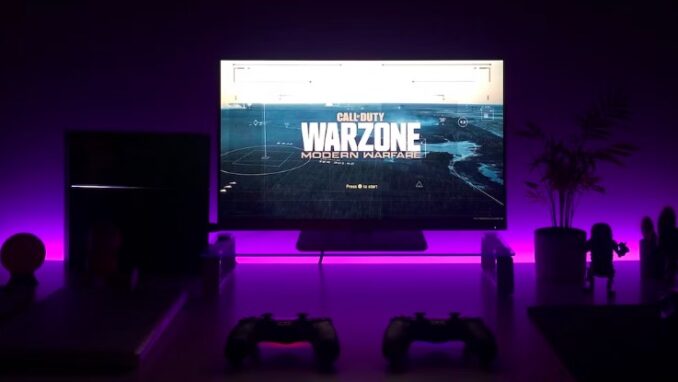For much of the last couple of years, video game companies have been riding high, breaking sales record after sales record. But recent rumblings have suggested that gamers are buying fewer titles and spending less on their hobby.
Is this something that the industry should be concerned about?
What’s Happening?

source:nbcnews.com
A study published by the market research firm NPD found that consumer spending in the United States on video games and video game-related products fell by almost $1.8 billion in the second quarter of 2024.
This came after Microsoft and Sony reported year-on-year declines in both hardware and software sales.
More recently, Take-Two saw its share price decline by as much as 17% after it lowered its annual sales forecast and revised its full-year sales projections to be between $5.4 and 5.5 billion, rather than the original $5.8 and 5.9 billion.
We’ve Been Here Before

Source:nbcnews.com
Video games have been around for almost five decades and, in that time, they’ve experienced plenty of ups and downs.
In its most recent history, gaming has enjoyed explosive growth in the last few years. Even just this May, the BBC was reporting that the number of jobs related to video gaming in Scotland grew by 26% between April 2020 and December 2024.
This was off the back of record-breaking rises in player numbers, playing time, and sales that seemed to defy gravity in the last few years.
But, of course, this is just one of many cycles. Almost exactly a decade earlier, publishers were reporting major slumps in sales brought on by a lack of new titles and other difficulties within the industry.
If we look back even further, the 1983 video game bubble saw the share prices of gaming companies rise to levels still not matched today (when you account for inflation), but this was followed by a crash that destroyed many developers and publishers.
Less Need to Buy Games

source:unsplash.com
There are, however, few parallels to be drawn between the early 1980s and today. The ‘83 crash was brought on by poor-quality content being pushed out by every man and his dog, just to cash in on the latest craze.
Today, there are very different reasons why sales are dropping.
The biggest of these is the fact that players simply have less of a need to buy new content. Firstly, most gamers already own a vast library of titles that they can enjoy, many of which are still just as exciting today.
Another big factor is that there are many more ways to enjoy gaming content today than in the past.
For example, players who like to play casino games have thousands of different video slot titles that they can enjoy from a mobile device or web browser. There is a lot of competition in this space, leading to the creation of unique features like the Megaways function found in Gonzo’s Quest which creates up to 117,649 separate paylines.
Free-to-play games also offer hours of fun without the need to shell out for a title upfront. Many, like Call of Duty: Warzone, use the same game engines as their paid counterparts and competition. Therefore, there are fewer incentives to buy new content when there is plenty of quality available for free.
No Big Releases
Early in the year, Sony attributed one of the reasons for its decline in sales to the fact that it had few blockbuster releases available for its new PlayStation 5 console, which was suppressing demand.
Similarly, Take-Two’s slide is partially caused by the fact that the company’s biggest IP, Grand Theft Auto, hasn’t seen an entirely new game released since 2013. Its second-largest title, Red Dead Redemption, is also now more than four years old.
There have been widespread delays in the release of new video games over the last couple of years. This was brought on by the issues suffered by Cyberpunk 2077 after it was released with many bugs and glitches.
In response, several studios are choosing to delay the release of new games in order to focus on quality control so they don’t face the same backlash from players.
Perspective
While this news isn’t great, it is also important to look at it in context. Video game sales are still higher than they were in 2019, even after the decline.
On top of that, Take-Two’s revenue decline is also relative. Even in a worst-case scenario, it expects to have sold $5.4 billion worth of content over the last year, a sum of money that shouldn’t be sniffed at.
Ultimately, it will be publishers like that which decide the fate of the industry as they will be in the best decision to fix some of the problems faced by their games. So, if they can bring forward the releases of their latest content, they can increase their own sales greatly.





